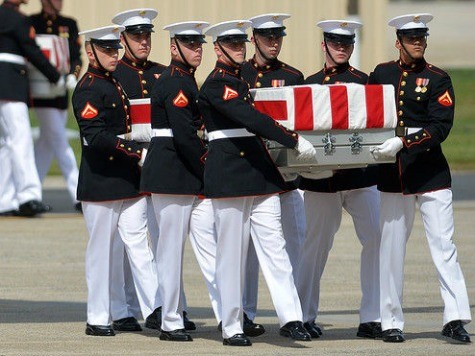It has been 70 days since Congressman Frank Wolf (R-VA) introduced House Resolution 36 on January 18, 2013. If passed, this important resolution would create “a select committee to investigate and report on the attack on the United States consulate in Benghazi, Libya.”
It’s difficult to understand how any responsible Member of Congress who is concerned about government accountability and national security could say no to this select committee for an issue of such significance.
Yet 70 days since its introduction, while gaining slow but steady momentum in the halls of Congress, the resolution enjoys just 66 co-sponsors to date. The Benghazi terrorist attack, which occurred more than six months ago, killed four American heroes, including our Ambassador Christopher Stevens, and injured a still unknown number of others. Who are these 366 Members of the U.S. House of Representatives saying no to a thorough investigation and why?
To begin with, all 200 Democrats in the U.S. House are saying no. It’s clear that Nancy Pelosi, Steny Hoyer, and the rest of the Democrats are not interested in supporting a measure that might shed light on what President Obama, then-Secretary of State Hillary Clinton, and the rest of the administration did or didn’t do on September 11, 2012. It’s disappointing, but awfully predictable.
What’s more surprising is that 166 out of 232 Republicans have yet to sign on to the resolution, which would give the Benghazi investigation the prominence and attention that it so desperately deserves. Conservative grassroots organizations like Citizens United are hearing from their members coast to coast about the lack of accountability and transparency from their government concerning the events that occurred in Benghazi.
It is unthinkable that House Resolution 36 doesn’t have a vast majority of the Republican caucus in the U.S. House backing it by now. What is happening to prevent this obvious necessity from gaining more traction and becoming a reality?
Is it because some powerful committee chairmen who share jurisdiction on the issue don’t want to lose control? This very well may be, but the truth is that the various public hearings to date have been incomplete and sporadic.
A consolidated investigation via a select committee would give all Americans–in particular the families of the deceased and wounded–the opportunity to witness an inquiry of high stature on television which could then feasibly result in a final report before the one year anniversary of the tragedy. Not to mention, these committee chairman would have the option to serve on the select committee if and when it’s created. I for one would welcome these leaders on the committee.
It was recently reported that Speaker of the House John Boehner and the aforementioned committee chairmen met to discuss what to do about the Benghazi investigation. It was revealed to Fox News that the chairmen plan to combine their information and release a report in “weeks not months.” In the same story, Speaker Boehner stated that “[F]rankly, there’s a lot that we still don’t know.”
That begs the question: how can the U.S. House credibly release a final report in “weeks” if “there’s a lot that we still don’t know”? I don’t accept this approach because it would clearly not result in a thorough investigation; the American people shouldn’t accept it either. That’s why a select committee is necessary to conduct this important work in a methodical way with a reasonable time limit.
It’s time for Speaker Boehner and his committee chairmen to do the right thing and allow a select committee to move forward before it’s too late. Mr. Speaker, urge your members to support House Resolution 36 and take it to the floor for a vote. You were absolutely and tragically correct when you said, “[F]rankly, there’s a lot that we still don’t know.”
Please call your Member of Congress today at (202) 225-3121 and tell them to stand for truth and accountability by co-sponsoring House Resolution 36.



COMMENTS
Please let us know if you're having issues with commenting.